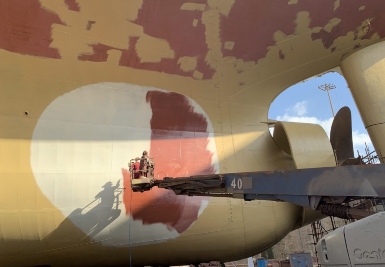
After a 48-day expedition, S/V KWAI, the marine plastic recovery vessel operated by the Ocean Voyages Institute, successfully removed 103 tons of fishing nets and consumer plastics from the North Pacific Subtropical Convergence Zone, more commonly known as the Great Pacific Garbage Patch or Gyre.
Establishing its lead in open ocean clean-up, Ocean Voyages Institute has set a new record with the largest at sea clean-up in the Gyre to date, more than doubling its own results from last year. You can read more about the work of the organisation here.
“I am so proud of our hard working crew,” says Mary Crowley, founder and executive director of Ocean Voyages Institute. “We exceeded Continue reading “Over 100 tons of fishing nets and plastic removed from the sea following Ocean Voyages Institute initiative”








 The newly elected President of The Nautical Institute, Jillian Carson-Jackson has vowed to help the Institute and wider maritime community meet three important challenges – those of diversity and inclusion, branch engagement and managing the impact of technology.
The newly elected President of The Nautical Institute, Jillian Carson-Jackson has vowed to help the Institute and wider maritime community meet three important challenges – those of diversity and inclusion, branch engagement and managing the impact of technology.
 “The patient is being left to die.” Those were the stark words used by Paul Rodgers to describe how grave he sees the situation that UK waterways holiday hire companies, boatyards, boatbuilders, training operations, marinas, boat clubs and other waterways businesses find themselves in thanks to the collapse in business following the COVID-19 related shutdown.
“The patient is being left to die.” Those were the stark words used by Paul Rodgers to describe how grave he sees the situation that UK waterways holiday hire companies, boatyards, boatbuilders, training operations, marinas, boat clubs and other waterways businesses find themselves in thanks to the collapse in business following the COVID-19 related shutdown.